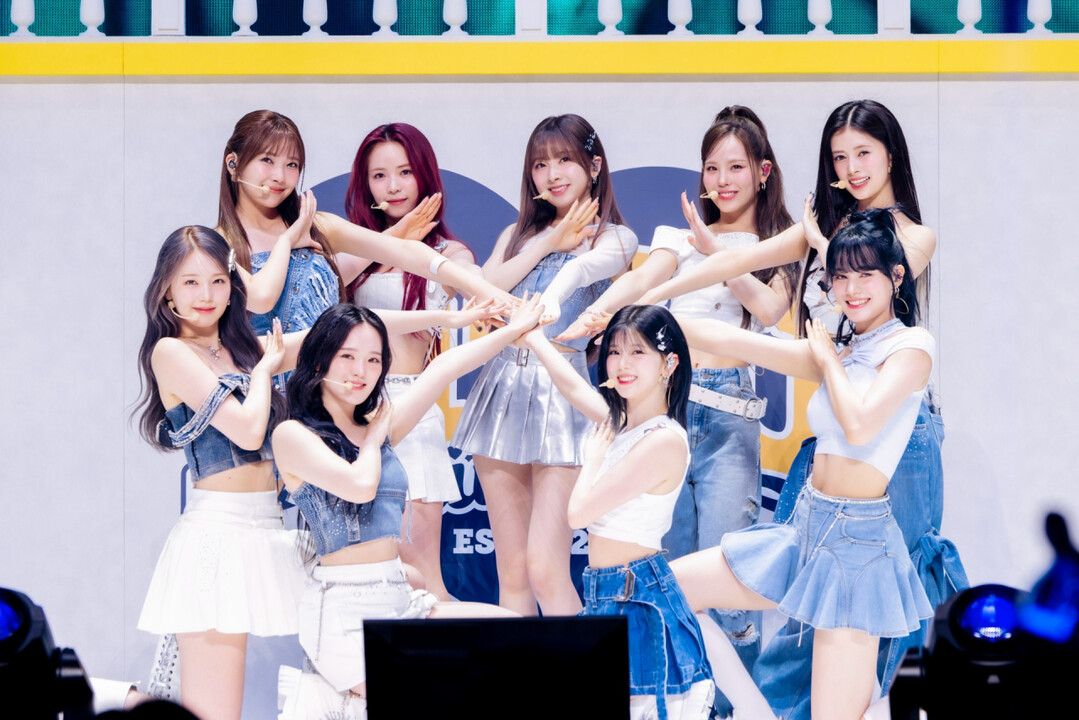Courtesy of Hybe
As K-pop continues to experience global success, industry leaders are exploring strategies to maintain and expand its international momentum. A key approach, known as localization, involves adopting the K-pop model of talent discovery and training in different overseas markets.
SM Entertainment's founder, Lee Soo-man, first introduced the concept in 2016 through a boy band initiative aimed at broadening K-pop's reach. This led to the formation of NCT (Neo Culture Technology), a group with 26 members organized into various subunits. Despite its global ambitions, including units focused on Japan and China, NCT's success has been largely concentrated in South Korea. The group's launch coincided with geopolitical tensions that restricted Korean pop performances in China.
 |
| ▲ Katseye / Courtesy of Hybe |
The global success of BTS highlighted the potential of K-pop in Western markets and spurred renewed efforts in localization. However, early attempts by non-Korean groups like EXP Edition and Blackswan to establish themselves in the K-pop scene were not successful and eventually disbanded. Conversely, groups such as SM Entertainment's WayV in China and Hybe Labels Japan's &Team have managed to maintain activity in their respective regions.
NiziU, a Japanese K-pop girl group formed in 2020 by JYP Entertainment and Sony Music Entertainment Japan, has seen moderate success with several singles charting in Japan and the United States.
 |
| ▲ NiziU / Courtesy of JYP Entertainment |
K-pop companies like JYP Entertainment, Hybe, and SM Entertainment are now collaborating with Western entertainment firms to introduce localized K-pop groups. In 2023, JYP launched VCHA, a multinational girl group, in partnership with Republic Records in the US. On June 28, Hybe will debut Katseye, a global K-pop girl band with one Korean member, in collaboration with Geffen Records. Later this year, SM Entertainment plans to unveil an all-British K-pop boy band with British producer Moon&Back Media.
Hybe Chairman Bang Si-hyuk emphasized the need for scalability to ensure K-pop's long-term sustainability. Speaking on the TV show "You Quiz on the Block" in November, he stated, "K-pop should no longer be confined to specific regions but should expand globally by discovering artists localized to each region through K-pop's training and development systems."
 |
| ▲ VCHA / Courtesy of JYP Entertainment |
Critics of localized K-pop groups argue that their success in Western markets may be limited. Pop music critic Lim Hee-yun notes that K-pop's appeal in the West is partly due to the distinctiveness of Korean artists. Similarly, critic Lim Jin-mo points out that fans may lose interest in groups made up entirely of non-Korean members. Grace Kao, a Yale University professor who lectures on K-pop, adds that part of K-pop's charm for American fans is its Korean origin.
Despite mixed results from previous localization efforts, Hybe is confident in the potential of Katseye, which will be trained by experienced Korean producers and promoted in the US by Geffen Records. According to a Hybe official, Katseye's members have undergone extensive training in Korea, and their debut album will feature songs produced by American songwriters.
Sayart
Joy, nunimbos@gmail.com
Major South Korean Labels Collaborate with Western Partners to Expand Influence
Courtesy of Hybe
As K-pop continues to experience global success, industry leaders are exploring strategies to maintain and expand its international momentum. A key approach, known as localization, involves adopting the K-pop model of talent discovery and training in different overseas markets.
SM Entertainment's founder, Lee Soo-man, first introduced the concept in 2016 through a boy band initiative aimed at broadening K-pop's reach. This led to the formation of NCT (Neo Culture Technology), a group with 26 members organized into various subunits. Despite its global ambitions, including units focused on Japan and China, NCT's success has been largely concentrated in South Korea. The group's launch coincided with geopolitical tensions that restricted Korean pop performances in China.
 |
| ▲ Katseye / Courtesy of Hybe |
The global success of BTS highlighted the potential of K-pop in Western markets and spurred renewed efforts in localization. However, early attempts by non-Korean groups like EXP Edition and Blackswan to establish themselves in the K-pop scene were not successful and eventually disbanded. Conversely, groups such as SM Entertainment's WayV in China and Hybe Labels Japan's &Team have managed to maintain activity in their respective regions.
NiziU, a Japanese K-pop girl group formed in 2020 by JYP Entertainment and Sony Music Entertainment Japan, has seen moderate success with several singles charting in Japan and the United States.
 |
| ▲ NiziU / Courtesy of JYP Entertainment |
K-pop companies like JYP Entertainment, Hybe, and SM Entertainment are now collaborating with Western entertainment firms to introduce localized K-pop groups. In 2023, JYP launched VCHA, a multinational girl group, in partnership with Republic Records in the US. On June 28, Hybe will debut Katseye, a global K-pop girl band with one Korean member, in collaboration with Geffen Records. Later this year, SM Entertainment plans to unveil an all-British K-pop boy band with British producer Moon&Back Media.
Hybe Chairman Bang Si-hyuk emphasized the need for scalability to ensure K-pop's long-term sustainability. Speaking on the TV show "You Quiz on the Block" in November, he stated, "K-pop should no longer be confined to specific regions but should expand globally by discovering artists localized to each region through K-pop's training and development systems."
 |
| ▲ VCHA / Courtesy of JYP Entertainment |
Critics of localized K-pop groups argue that their success in Western markets may be limited. Pop music critic Lim Hee-yun notes that K-pop's appeal in the West is partly due to the distinctiveness of Korean artists. Similarly, critic Lim Jin-mo points out that fans may lose interest in groups made up entirely of non-Korean members. Grace Kao, a Yale University professor who lectures on K-pop, adds that part of K-pop's charm for American fans is its Korean origin.
Despite mixed results from previous localization efforts, Hybe is confident in the potential of Katseye, which will be trained by experienced Korean producers and promoted in the US by Geffen Records. According to a Hybe official, Katseye's members have undergone extensive training in Korea, and their debut album will feature songs produced by American songwriters.
Sayart
Joy, nunimbos@gmail.com
Related articles
- Red Velvet Releases New Mini Album "Cosmic"
- Nayeon's Latest EP "Na" Breaks Records on Billboard 200
- NewJeans Tops Oricon Charts with Debut Japanese Single
- ‘Inside Out 2’ Reaches 3 Million Admissions in South Korea


















